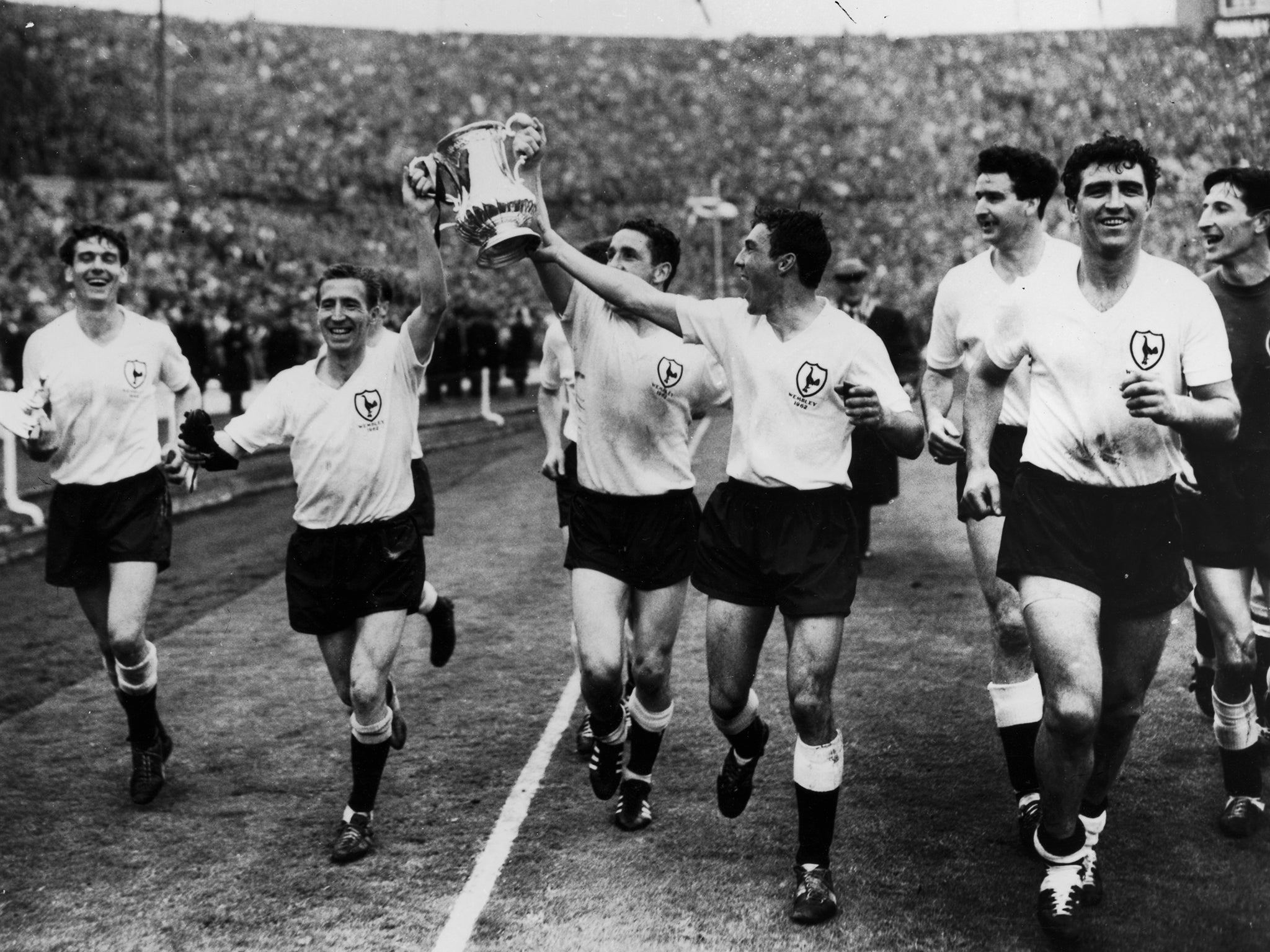Ron Henry: Composed full-back who was an unsung but key player in Spurs' historic 1960-61 double-winning side

Ron Henry was an untrumpeted yet near-metronomically reliable member of Bill Nicholson’s sumptuous Tottenham Hotspur team, which, in 1960-61, became the first in the 20th century to win the League and FA Cup double.
The side was loaded with stars – majestic wing-halves Danny Blanchflower and Dave Mackay, scintillating winger Cliff Jones and subtly brilliant inside-forward John White to name but four – but none of them was more efficient than the dapper, unfussy left-back, who became a stalwart defensive bulwark of one of the most gloriously entertaining combinations in the history of the British game.
Henry’s contribution was based on intelligence, strength and utter dedication to his work. His positional sense was highly tuned, which made him a frequent interceptor of opposition dispatches, while the excellent timing of his challenges was matched by their formidable power – his sliding tackles were a spectacular speciality – though arguably his knack of shepherding opponents into less dangerous areas was even more valuable.
He was forceful in the air and although he was composed in possession of the ball and capable of joining in Spurs’ lovely flowing movements, he was rarely tempted into over-ambitious manoeuvres, preferring to pass, simply and safely, to more creative colleagues.
Born a Londoner, Henry grew up in Redbourn, Hertfordshire, after being evacuated there during the war. He made his first notable impact as an amateur left winger with Luton Town, switching to Spurs as an amateur in March 1953, then turning professional in January 1955.
Three months later, still only 20, he made his senior debut as a centre-half in a 1-0 defeat at Huddersfield, but soon found his preferred position to be left-back.
However, the Tottenham No 3 shirt was firmly in the possession of the classy Mel Hopkins, and although Henry was competent when called upon, it was not until the Welshman suffered a broken nose on international duty in November 1959 that the erstwhile understudy achieved a sustained breakthrough.
It had been expected that Hopkins would return when fit, but the doggedly determined Henry proved too reliable to drop. His steadiness communicated itself to the entire rearguard and his impressive form was further emphasised by the productive understanding he struck up with the similarly unshowy right-back Peter Baker, one invariably covering defensively if the other surged forward into attack.
It was tough on the polished, loyal Hopkins, but Henry became a fixture in the team, missing only one of the next 188 games as Spurs completed the coveted double in 1961, retained the FA Cup in 1962 and became the first British winners in continental competition by lifting the European Cup Winners’ Cup in 1963.
Against Leicester City in his first Wembley final, Henry was arguably the man of the match, subduing the threat of the Foxes’ livewire right winger Howard Riley and outshining many of his star colleagues as the double was achieved with a 2-0 victory.
He was similarly diligent against England flankman John Connelly of Burnley in the 1962 final, a level of excellence he repeated as Atlético Madrid were slammed 5-1 in the Rotterdam final of the Cup Winners’ Cup.
Such work demanded international consideration, but he was up against formidable opposition for an England slot in the superb Ray Wilson, and Henry received only one cap, sharing the trauma of a 5-1 drubbing by France in Paris in February 1963.
Ironically, that was England’s first game under the guidance of Alf Ramsey, a hugely successful former Spurs full-back of whom Henry’s sensible style and upright carriage were reminiscent. Ramsey would go on to guide his country to World Cup glory in 1966, by which time the younger man’s first-team career was over.
Having briefly succeeded the retiring Blanchflower as Tottenham captain in 1963-64 before Mackay took the role in the long term, Henry suffered a succession of knee problems and was replaced at left-back by Cyril Knowles in 1965-66.
Thereafter, having made nearly 300 senior appearances and scoring a single goal, he proved an impeccable role model in the reserves before retiring as a player in 1969. Later he served his only professional club as a youth coach, occasionally turning out for junior sides when they were stretched, and was an inspiration to his grandson, Ronnie, currently a defender with Stevenage of League Two. After leaving the game, Henry ran a plant nursery in Hertfordshire.
Ron Henry was one of the quiet men of Spurs’ history-making team, but his reassuring influence spoke louder than words.
Ronald Patrick Henry, footballer: born Shoreditch, London 17 August 1934; played for Tottenham Hotspur 1954-66; capped once by England 1963; died Harpenden, Hertfordshire 27 December 2014.
Subscribe to Independent Premium to bookmark this article
Want to bookmark your favourite articles and stories to read or reference later? Start your Independent Premium subscription today.

Join our commenting forum
Join thought-provoking conversations, follow other Independent readers and see their replies